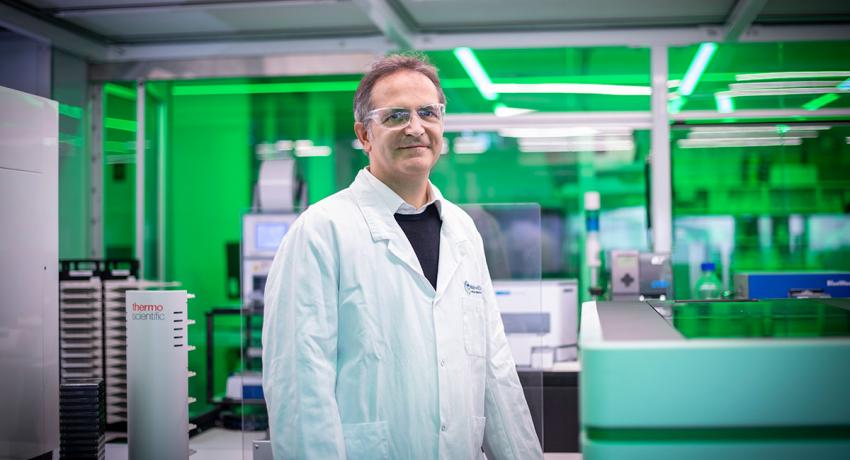Professor Guillaume Lessene
The problem
A decade of research and a high-throughput screening campaign has enabled scientists to develop a world-first compound that keeps cells alive and healthy when they otherwise would have died.
The ability to swiftly intervene and prevent cell death – or apoptosis – could be game-changing for medical emergencies and procedures, such as minimising cellular damage after heart attacks, or preserving organs for transplants. Intervention at the earliest stages of apoptosis can prevent irreversible damage from occurring.
Activating the intrinsic (mitochondrial) apoptosis pathway with targeted small molecules is now a clinically validated approach to cancer therapy. In contrast, blocking apoptosis to prevent cell death is yet to be effectively achieved.
The solution
Phenotypic screening enables the testing of a compound’s ability to inhibit a biological process in live cells. We designed a screen in which apoptosis was induced in an engineered pre-clinical model embryonic fibroblast cell line by treatment with a compound called ABT-737. ABT-737 is a BH3 mimetic that selectively inhibits the pro-survival proteins Bcl-2 and Bcl-xL, and efficiently induces apoptosis when Mcl-1 (another pro-survival protein) is absent.
A robust, miniaturised and automated 384-well format cell viability assay was developed and used to screen over 250,000 lead-like compounds to identify inhibitors of apoptosis.
Secondary confirmation assays focused on 49 compounds for structure-activity relationship studies. This ultimately led to the development of WEHI-9625, a highly potent tricyclic sulfone which was then used for extensive target identification and validation studies.
The results
The outcome of the project was the generation of a highly potent small-molecule tool compound that acted with a novel and defined mechanism, contributing key insights into the biology of apoptosis. This first-in-class inhibitor demonstrated that blocking apoptosis at an early stage was both advantageous and pharmacologically tractable.
This latest research offers hope that one day drugs that successfully intervene to block apoptosis could be used to treat conditions such as cardiovascular diseases and degenerative disorders.
Researchers are now looking at how to develop cell death blockers that are effective and safe in humans, which would involve applying the knowledge gained to more advanced models of disease. There could also be applications for keeping cells alive to prevent degenerative diseases.

